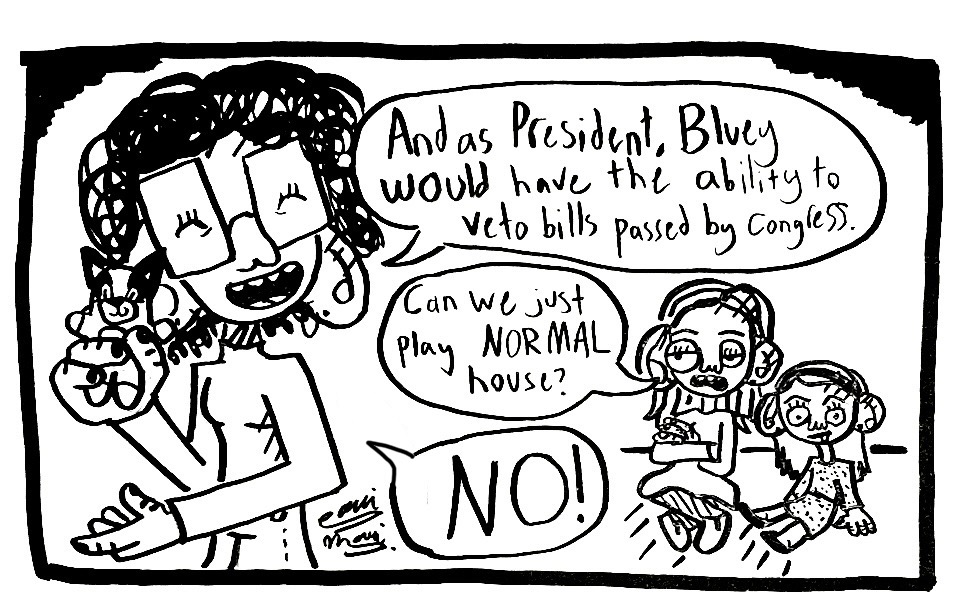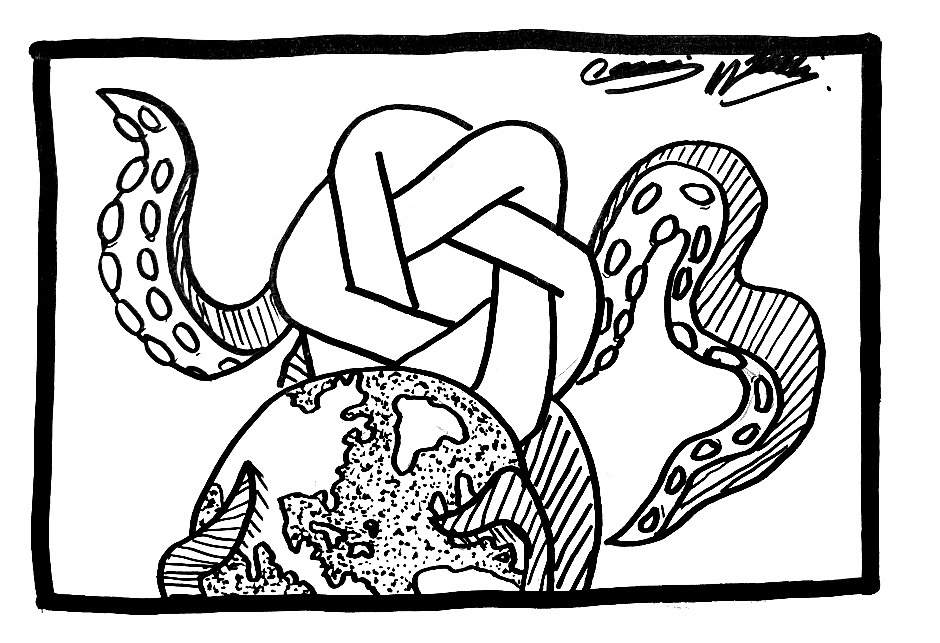Content warning: This article contains references to gun violence
Christine Yared is a sophomore majoring in communications and political science and a former student at Marjory Stoneman Douglas High School in Parkland, Florida.
Seventeen defenseless teachers and children were slaughtered in cold blood at Marjory Stoneman Douglas High School in Parkland, Florida in 2018. Bullets pierced and tore apart bodies, then ricocheted around the hallways, stairwells and classrooms. Countless others had to hide from the gunfire and see their peers die. In the meantime, armed Broward County Sheriff’s Office Deputy Scot Peterson, who was on duty that day as a school resource officer, hid outside behind a stairwell wall for 48 minutes. This was the reality of the shooting in Parkland, which I survived.
The police didn’t protect me and my classmates at Marjory Stoneman Douglas. And whether they have guns or not, GW Police Department officers will not protect the students, faculty or staff at GW.
The failures of Peterson and other sheriff’s deputies who stayed outside during the shooting began long before the shooting even happened. The shooter’s friends, family and neighbors flagged him multiple times as a risk to himself or others through dozens of 911 calls and at least two FBI tips, but law enforcement did not intervene. Peterson and seven other sheriff deputies heard the gunshots coming from the building but did not run in to try to stop the massacre. Other officers lost time trying to get their bulletproof vests. In the meantime, the shooter was able to get rid of his gun, leave the building and join the large mass of students evacuating the school. Poor technology maintenance meant that emergency service radios were not working during the shooting, sparking communication issues between law enforcement and medical responders.
As the police failed us time and time again, it was heroic students and teachers who protected people at Marjory Stoneman Douglas that day – Peter Wang, Joaquin Oliver, Aaron Feis, Chris Hixon, Scott Biegel and Helena Ramsay, among others, paid for it with their lives. They were infinitely braver than armed police officers. Though they were defenseless, and many of them not even adults, the students and teachers of Marjory Stoneman Douglas stepped into action to save lives. But they shouldn’t have had to do that – we shouldn’t have 15-year-old martyrs.
Police officers have one job – to keep people safe – and they couldn’t do it that day. When pushing for gun rights, people repeatedly argue that “good guys” with guns will stop the “bad guys” with guns. This was not the case at my school. Why were the “good guy” police officers hiding from danger?
The police are cowards when they hide away to protect themselves while children are murdered, and we pay the price for their cowardice. Armed police did not save Marjory Stoneman Douglas when my school transformed into a shooting range. Armed police did not save Robb Elementary School in Uvalde, Texas last May. And if something were to happen at the University, I wholeheartedly believe armed police would not save GW.
Gun violence is the leading cause of death for children in the United States, but major school shootings like the one I experienced are rare. While we should take steps to respond to gun violence, we need to determine if measures like arming school police officers will keep schools safe or if they will make them more dangerous. Past research has shown that armed officers on school campuses do little to prevent gun violence. Armed school resource officers “do effectively reduce some forms of violence in schools but do not prevent school shootings or gun-related incidents,” according to a 2021 study by the University at Albany and international policy think tank RAND Corporation. And researchers at Hamline University and Metropolitan State University in Minnesota found “armed guards were not associated with significant reduction in rates of injuries” in a separate 2021 study.
Arming GWPD officers will not increase GW’s overall safety, but it can make interactions with them on the University’s campuses dangerous and even deadly. Introducing guns to campus risks turning a minor, nonviolent incident into a fatal encounter if GWPD shoots first and asks questions later. GWPD officers can be seen flanking students at any campus protests, settings where students of color demonstrate against the University’s proven track record of racist actions, like the oppression of Arab voices. I fear what they would do if armed. When a disabled student on campus acts in a way that is not considered “normal,” an intoxicated student commits petty theft or a hijabi student speaks a foreign language on the phone, I fear what an armed GWPD would do.
To the newly elected Student Association President, Arielle Geismar – what are you going to do about this? I’ve seen that gun violence prevention is a large part of your advocacy work, which I am grateful for. But remember to listen to what actual gun violence survivors want once you assume office. This includes me, but it also includes Black and Brown people who have experienced the brutality of armed police. Will you represent us and our peers and fight this policy? How do you plan to do it?
Though I am Arab and have encountered my fair share of racist surveillance, being white-passing means that I cannot adequately represent students of color impacted by policing on campus. So find a person or an organization to hear and amplify their voice like GW Black Defiance, one of the student organizations that helped organize the first protest in response to the arming of GWPD officers Monday. An armed GWPD will impact Black and Brown GW students the most – we need to support and advocate for them. Over the past three years, GWPD officers have disproportionately stopped Black people more than individuals of any other racial demographic on a predominantly white college campus.
So join a protest, sign a petition, write a letter to the Board of Trustees and report GWPD’s racist microaggressions, discrimination or violence. Use your voice to keep this issue at the forefront of GW until it is resolved. GW students have a history of successfully fighting for change against unjust University policies. If we act, we will be able to change this one as well.
The police don’t keep us safe. We keep ourselves safe.



